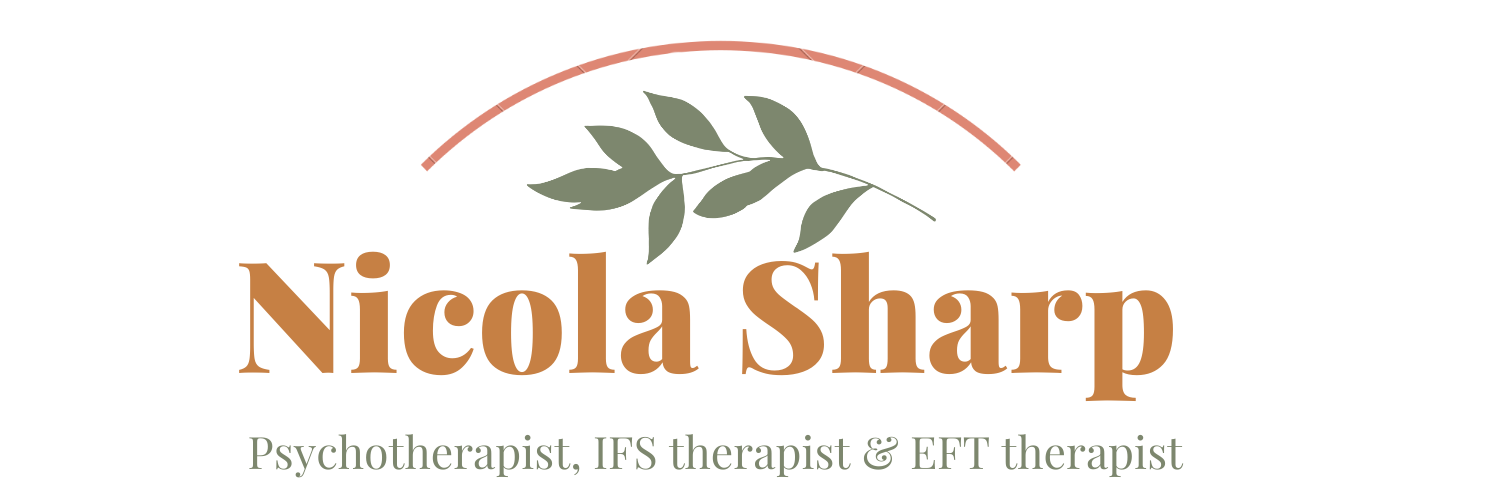Self-Abandonment: What is it and What Can We Do About it?
Self-abandonment is when you deny your intuition, emotions, needs, or beliefs. It often happens due to fear of fully acknowledging what you truly think, feel or believe or due to fear of rejection from others. This may happen unconsciously or consciously. You may realise what you want or need and then ignore this for the sake of ‘keeping the peace’, fear of offending or upsetting someone, or fear of criticism.
10 signs you are abandoning yourself:
Saying yes when your whole self is saying a clear no.
Agreeing to things that you don’t actually agree with.
Putting on a mask and pretending to be someone that you’re not.
Not speaking up when something is bothering you.
Invalidating your feelings ‘I shouldn’t feel this way.’
Allowing people to not respect your boundaries.
Consistently putting yourself in situations that you don’t enjoy.
Criticising yourself harshly.
Neglecting your health (physically, emotionally, spiritually, mentally).
Confused about what you like or believe in.
You don’t have to be experiencing all these things, nor is this list exhaustive. You might only engage in self-abandonment in occasional situations. People-pleasing and perfectionism are habits that involve regularly abandoning yourself. So if you recognise that you experience either of these, you are probably regularly self-abandoning.
It is not your fault
I want to emphasise that it is not shameful or your fault if you self-abandon. If you have developed this habit, it is probably because it was a useful coping skill at a time in your life to keep yourself emotionally safe when you had no other way to cope. It is actually a skill to be able to please others, avoid emotions and gain external acceptance, albeit an invalidating one. So if you are identifying with these behaviours, I invite you to generate compassion towards yourself for all the times you have neglected yourself, minimised your voice and suppressed your emotions. We all want to be liked, accepted and to belong and sometimes the environments that we grew up in were not emotionally safe for us to be ourselves.
However, by recognising that this habit is present, acknowledging whether it is helpful to repeat it and developing self-compassion and building alternative habits you can start to be kinder to yourself, get your needs met and feel more fulfilled.
On the other side of the coin, if you are respecting yourself it might look like the list below.
Signs That You are Respecting Your Self:
You maintain awareness of your feelings and respond kindly towards them.
You try to be aware of the different parts of you, what they need and what your Self (intuitive, compassionate and wise part of you) needs.
You are aware of your limits and your boundaries and you express them.
You listen to the physical feelings/feedback from your body and respond to these feelings. E.g. resting when you’re tired, not eating foods that you don’t want to eat.
You value your authenticity and try to be as congruent with your inner self as you can.
You can be compassionate towards your difficult feelings, thoughts and experiences.
You try to aim for internal validation rather than external.
You live your life according to your values.
I want to emphasise here, to respect yourself you do not need to be perfect. You do not need to perfectly fulfill those on the above list all the time, just some of the time. We are human, and we will not be able to live up to these guidelines perfectly. Even just doing these things sometimes is a huge achievement in this world that we live in. Just having the intention to change how you relate to yourself can make a significant difference. The more we can align ourselves with this, without the expectation of perfection, arguably the more fulfilled and healthier we will be.
Engaging in practices that gently facilitate you to connect and attune to yourself can help, as the opposite of self-abandonment is self-attunement.
Here are some practices that can help tune into yourself:
Meditating, being aware of your moment to moment experience without judgment.
Journalling- Writing down exactly hmoment-to-momentow you feel with no filters, not worrying about grammar, spelling and punctuation, just writing down how you feel can be cathartic and help build awareness of what you want and feel.
Creating time for silence or stillness: This might be going for a walk by yourself with no music, doing the washing up with no podcast playing in the background, or even just 5 minutes to check in with yourself. Allowing time for your thoughts to bubble up, even when you are doing something else.
Talking to a friend or therapist about how you really feel. Having someone to talk to where you can talk freely about what’s really going on with you.
Doing things you truly enjoy. Activities that really light you up, energise you and make you feel more positive.
Set boundaries with others. Start small and build gradually, get used to putting your needs and wants first some of the time.
I hope this helps. If you want to find out more about living more compassionately and authentically sign up for my email list here.

